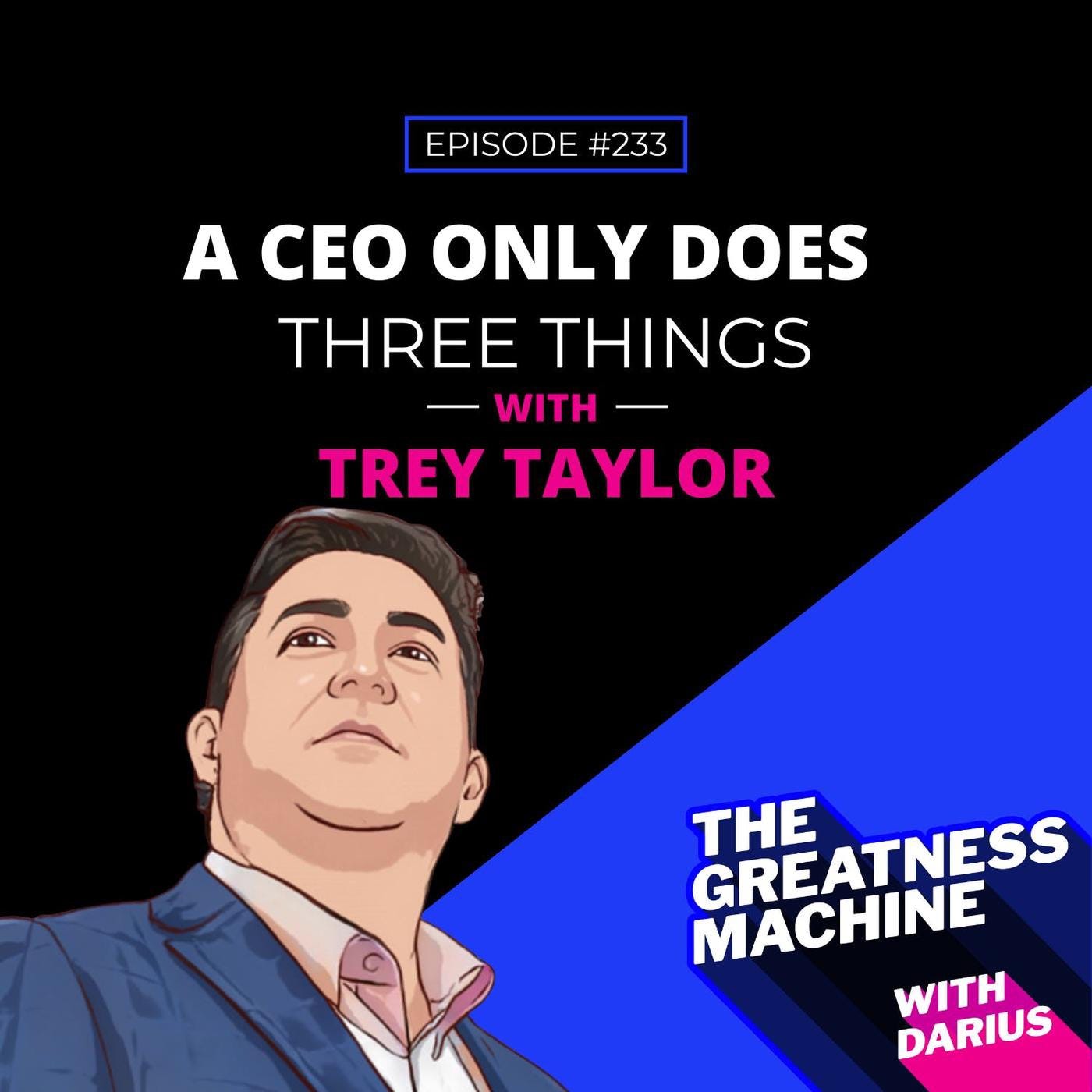Darius Mirshahzadeh is an amazing business person and podcaster. His podcast, the Greatness Machine, is one that I’ve listened to for years. His guest list is solid gold: Chris Voss, Amanda Knox, freaking Moby … he gets everyone who has something to say. I’m not ashamed to say that I’ve discovered a ton of my favorite thought leaders from his efforts.
Earlier this year I spoke at MIT and sat down at a table for a conversation with a couple of guys. Darius was one of them and as we began to talk this strange phenomena of “I know you but I’ve never met you,” came over both of us. It turned out that he was a fan of my bestselling book, “A CEO Only Does Three Things,” and had just gifted a copy to a friend in Atlanta. I shared with him that I knew and loved his podcast work. Instant friendship.
On this podcast, we talk like old friends and break down the things that CEOs do and should do. Darius adds the fruit of his thought leadership to my framework and it makes for an enjoyable time. I hope you’ll give it a listen and subscribe to his podcast for other good insights, as well. His emails (available on his site here) are dynamite, too.
“Don’t be a guest in your own life, be the host!”
—Jason Hartman
I’m watching the economy adjust from the sidelines. I’m seeing really strong entrepreneurs run out of funding and have their companies fail. I’m seeing others who aren’t that gifted succeed and have a future available. In observing it all, I’m asking myself what can be learned from this shift.
One lesson that presents itself: Choosing the right business is more important than how hard you work in that business. A total idiot can get rich if the market is right. I’m fond of saying that a monkey could make a million dollars in real estate in the past 3 years. A good market makes you look smart, it makes the work look easy.
Further reflection on this point reminds of me how many conversations I’ve had over the years with entrepreneurs who insist on taking the hard road. Complexity often equals difficulty, and there is something in us that believes that if its easy, its not worth it. This simply isn’t true, but man, it’s an addiction we have as a species.
On my desk, I keep a stack of index cards with quotes that I use to season my mind. In between zoom calls, I’ll flip through them. One of my favorites is a quote from Tim Ferris:
“What would it look like if it was easy?”
“A real man can suffer right in front of you and still smile about it.”
—Paradi$e
This will blow your mind:
This year, China is set to become the world’s biggest car exporter, overtaking Japan. The watershed moment will mark the end of decades of dominance by European, American, Japanese and South Korean groups … and yet, I’ve never seen a Chinese car and couldn’t tell the brand name of any of their cars, at all. Where are they exporting them to? Who’s buying them?
One reason you don’t see them puttering along American roadways? There is a 27.5% tariff on importing Chinese cars to the US. This matches a similar tariff China levies on US imports reaching back to the 2019 trade war between the Trump Administration and China.
“If you get close to what you love, what you love expands.”
—Ethan Hawke
Do you have trouble reading Wikipedia articles? Me either, but for some reason they have now released a version of Wikipedia written in simple English. Short sentences, smaller words. The world has reached a place of dumbing down the tools meant to make us smarter. Sigh.
I know I’m 100 years old now, but I remember a time when learning and researching topics that interested me meant looking up the words that were foreign concepts. I had an old Merriam Webster’s dictionary and I highlighted in yellow every word I ever looked up. When I went to college, the whole thing was dripping in fluorescent yellow.
Even today I’ll annoy people in a discussion by insisting that we define our terms. For minds unused to converting the abstract to the finite, this is a very frustrating exercise. For me, it’s essential. How can we discuss what we don’t agree we’re discussing?





